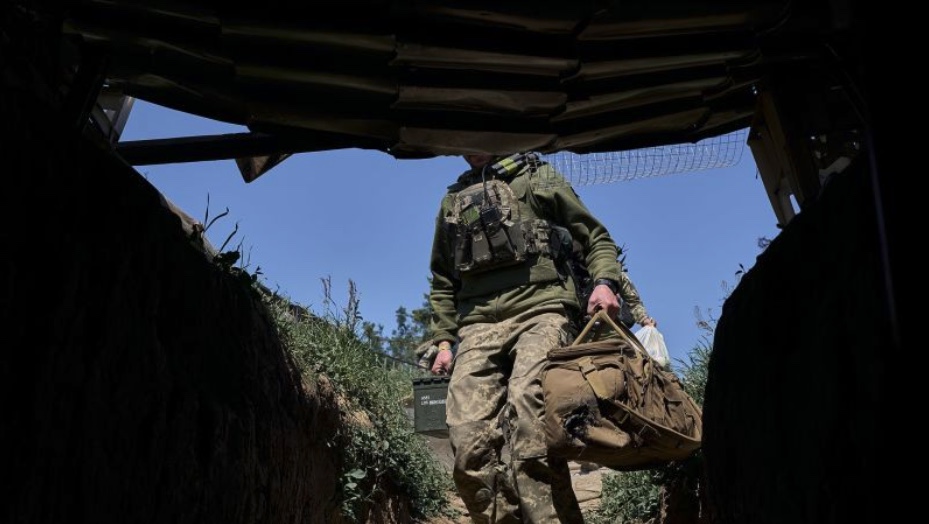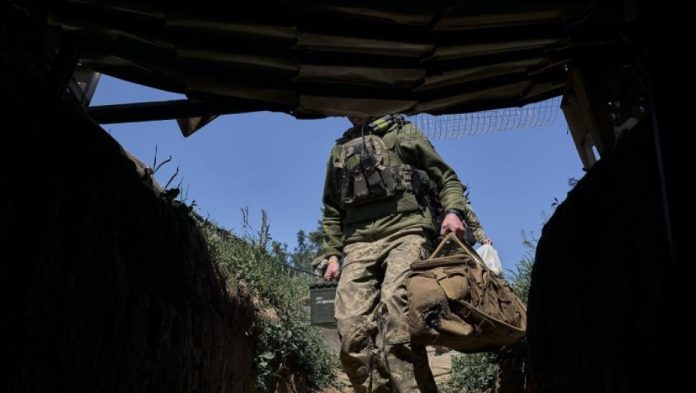ภายใต้กฎหมายใหม่ที่มีจุดมุ่งหมายเพื่อสนับสนุนกองกำลังของเคียฟในการต่อต้านการรุกรานของรัสเซีย นักโทษชาวยูเครนบางคนจะมีโอกาสขอทัณฑ์บนก่อนกำหนดและสมัครเข้ากองทัพ กฎหมายนี้ใช้กับผู้ต้องขังที่มีโทษจำคุกเดิมน้อยกว่าสามปีเท่านั้น และไม่รวมผู้ต้องขังที่มีความผิดร้ายแรงที่สุด เมื่อวันพุธที่ผ่านมา รัฐสภายูเครนลงมติเห็นชอบการแก้ไขประมวลกฎหมายอาญาที่อนุญาตให้ “ปล่อยตัวนักโทษก่อนกำหนดอย่างมีเงื่อนไข” ที่เกี่ยวข้องกับการมีส่วนร่วมอย่างแข็งขันในการปกป้องประเทศและปกป้องเอกราชและบูรณภาพแห่งดินแดนของประเทศ นักโทษที่ไม่มีคุณสมบัติได้รับทัณฑ์บน ได้แก่ ผู้ที่ถูกตัดสินว่ามีความผิดฐานก่ออาชญากรรมร้ายแรงและเจ้าหน้าที่ระดับสูง ตามที่ระบุไว้ในพรรค “คนรับใช้ของประชาชน” ที่นำโดยประธานาธิบดีโวโลดีมีร์ เซเลนสกี
ภายหลังการรุกคืบทางทหารของรัสเซียในแนวหน้า ยูเครนได้ริเริ่มมาตรการเพื่อแก้ไขปัญหาการขาดแคลนกำลังคนและกระสุนปืนอย่างร้ายแรง แนวทางปฏิบัติของรัสเซียในการสรรหานักโทษซึ่งใช้ในการสู้รบอันดุเดือด ได้รับการวิพากษ์วิจารณ์ว่าปฏิบัติต่อพวกเขาเสมือนทรัพย์สินที่สิ้นเปลือง กลยุทธ์การสรรหาบุคลากรดังกล่าวได้จุดชนวนให้เกิดการตอบโต้ภายในรัสเซีย โดยหลายคนกลับถูกโจมตีอีกครั้งหลังจากได้รับการปล่อยตัว กฎหมายใหม่กำหนดให้ต้องสมัครเป็นทหารโดยสมัครใจ โดยผู้ละทิ้งจะต้องได้รับโทษจำคุกเพิ่มเติม 5 ถึง 10 ปี ระยะเวลาในการรับราชการทหารสำหรับนักโทษยังไม่ระบุ Olena Shuliak ประธานคณะกรรมการ Verkhovna Rada เกี่ยวกับองค์กรอำนาจรัฐกล่าวว่านักโทษที่ถูกคุมขังซึ่งรับราชการในกองทัพจะถือเป็น “บุคลากรทางทหาร” ภายใต้กฎระเบียบด้านความประพฤติเดียวกัน
Shuliak ยังกล่าวอีกว่า “สิ่งนี้รวมถึงการกระทำต่างๆ เช่น การออกจากหน่วยทหารหรือสถานที่ให้บริการโดยไม่ได้รับอนุญาต การละทิ้งหน้าที่ทางทหาร โดยการทำร้ายตัวเองหรือวิธีการอื่น ๆ การออกจากสนามรบโดยไม่ได้รับอนุญาต การปฏิเสธที่จะใช้อาวุธ และการยอมจำนนโดยสมัครใจ” ผู้สมัครจะต้องเริ่มกระบวนการทัณฑ์บนโดยยื่นใบสมัคร ต่อจากนั้นพวกเขาจะได้รับการประเมินทางการแพทย์ที่สถานราชทัณฑ์เพื่อประเมินความเหมาะสมทางร่างกายและจิตใจในการรับบริการ ศาลจะพิจารณาพิพากษาตามคำร้องขอทัณฑ์บน หากได้รับการอนุมัติ นักโทษจะถูกโอนไปยังหน่วยพิทักษ์ชาติ สัญญาอาจถูกยกเลิกภายใต้สถานการณ์บางอย่าง เช่น สุขภาพไม่ดีหรือการกระทำความผิดครั้งใหม่โดยอดีตนักโทษ นอกจากนี้ พวกเขาอาจถูกกำจัดโดยเป็นส่วนหนึ่งของความพยายามในการถอนกำลังในวงกว้าง
As Ukraine undergoes a mobilisation overhaul, prisoners in Ukraine will have the opportunity to be granted parole in exchange for military service.

Under a new law intended to bolster Kyiv’s forces against the Russian invasion, certain Ukrainian prisoners will have the opportunity to seek early parole and enlist in the army. This legislation applies solely to inmates with less than three years remaining on their original sentences, excluding those convicted of the most severe offences. The Ukrainian parliament, in a vote on Wednesday, approved amendments to the criminal code permitting the “conditional early release” of prisoners contingent upon their active involvement in defending the nation and safeguarding its independence and territorial integrity. Prisoners ineligible for parole include those convicted of serious crimes and high-ranking officials, as stated by the ruling “Servant of the People” party led by President Volodymyr Zelensky.
Following Russian military advances on the front lines, Ukraine has initiated measures to address critical shortages of manpower and ammunition. Russia’s practice of recruiting prisoners, deployed in intense battles, has drawn criticism for treating them as expendable assets. This recruitment strategy has sparked backlash within Russia, with many reoffending after release. The new law mandates voluntary military enlistment, with deserters facing additional prison terms of 5 to 10 years. The duration of military service for prisoners remains unspecified. Olena Shuliak, chairwoman of the Verkhovna Rada Committee on Organization of State Power, stated that paroled prisoners serving in the military would be regarded as “military personnel,” subject to the same behavioural regulations.
Shuliak also mentioned that “This encompasses actions such as unauthorised departure from a military unit or place of service, desertion, avoidance of military duty through self-harm or other means, unauthorised exit from the battlefield, refusal to use weapons, and voluntary surrender.”
Applicants must initiate the parole process by submitting an application. Subsequently, they will undergo a medical assessment at the correctional facility to evaluate their mental and physical suitability for service. A court will then adjudicate on the parole request. If approved, the prisoner will be transferred to a National Guard unit. Contracts may be terminated under certain circumstances, such as poor health or commission of a new offence by the former prisoner. Additionally, they may be terminated as part of a broader demobilisation effort.
By CNN NEWS

















